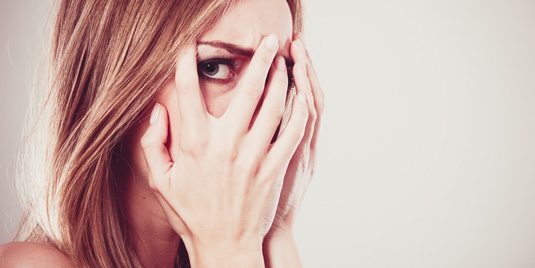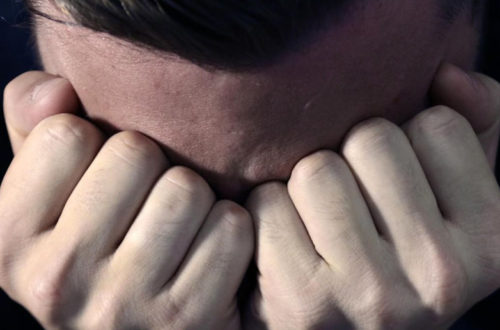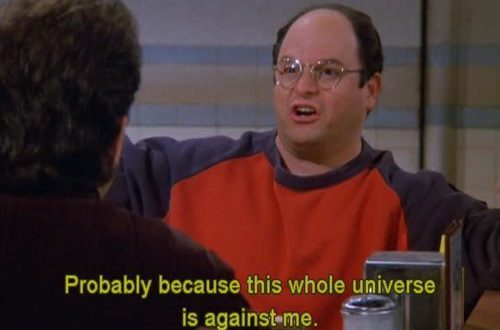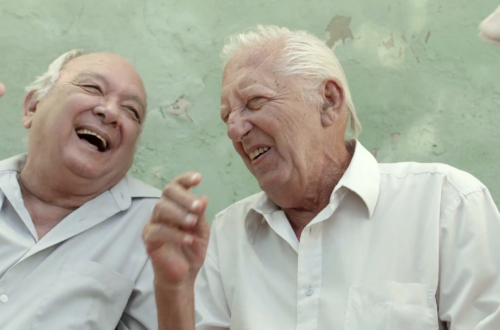I had a frenectomy today. For those unfamiliar with this particular periodontal terror, a frenectomy is the removal of the soft tissue (frenum) that connects lower lip to gum. Mine happened to be pulling my gums down to the extent bone in my bottom front teeth was being exposed. Eventually the teeth would have become loose, and then would be gone forever. The reason I’m writing about this in a mental health blog is because my anxiety caused sweating and nausea before the doctor even walked in the room. and I was certain my thirty-two year no vomit streak was over. I just knocked on wood. I felt vulnerable, helpless, and threatened, even though I was alone in the room. Fighting wasn’t an option, and flight would have left my dysfunctional frenum to ruin my teeth. I did the lesser known third option; I froze.
Aside from my overwhelming anxiety, I felt ashamed of my mental and physical overreaction to a non-invasive procedure that would take less than ten minutes to complete. From my distorted perspective, expressing anxiety suggested weakness and cowardice; two things I never want anyone to believe about me because I believe ridicule, minimization of my feelings, or scorn would result Fear of rejection of my anxiety has long kept me quiet about it in many life situations in which discomfort arose because I feared my vulnerability would be exploited in the end, and God forbid I should be vulnerable.
During my most anxious moments, I seem to forget the valuable role anxiety plays in our lives. In truth, without it we would be dead because no living creature could survive without it. Anxiety is nothing more than a physiological response to threats both real or imaginary. It is what tells skunks when to spray, turtles when to duck into their shells, or porcupines to utilize quills. It just so happens that as opposed to other members of the animal kingdom, our human brains sometimes trigger an anxious response when there is no real threat involved. My periodontist was there to help me, not hurt me, yet there I was about to barf on his floor. The he walked in, and I did something I rarely do.
Before he even finished greeting me with a standard, “how are we today?”, I forsook my knee jerk “fine”, and instead answered, “I’m actually anxious enough right now to throw up. Do you mind if I chew on some gum while we talk”? For whatever reason, chewing gum has always helped me with anxiety-induced nausea, maybe because it produces saliva and keeps my mouth busy, but who knows? It was a big moment for me because I put myself out there in spite of my shame, and risked possible ridicule, or being told, “Don’t be anxious. There’s nothing to be anxious about.” Anxious people don’t like to be told not to be anxious because our sympathetic nervous system acts independently of our neo-cortex, and we have little say on the matter. In other words, our old brain overpowers our new brain because old brain wants to keep us alive and has no time to allow new brain to be rational.
My doctor’s response was what any kind and sensitive human being would say. “Sure. Take your time. It’s going to be ok.” In that moment I could feel my breathing begin to deepen, my heart rate slow down, and my throat loosen. I chewed while we got to know each other and he explained the procedure he finished fifteen minutes later. As he worked on me, I couldn’t shake the thought that I was more afraid of humiliation than I was the procedure, and I lacked any faith that humanity would understand my apprehensions. It took all my energy to share my distress, and taking the risk resulted in having my needs met.
What I’m encouraging through sharing this experience is for us to open up about anxiety regardless of how afraid we are of shame. Shame compounds anxiety and intensifies our symptoms, and most of the time we are shaming ourselves more than anyone us ever would. People can be extremely understanding, and chances are we will discover others have felt similarly because anxiety is universal. Once we embrace that reality, we can figure out how we learned to keep anxiety to ourself as we engage in open discussion with others. The goal is to eradicate stigma, normalize anxiety, and make it safe for all to share their experiences.





